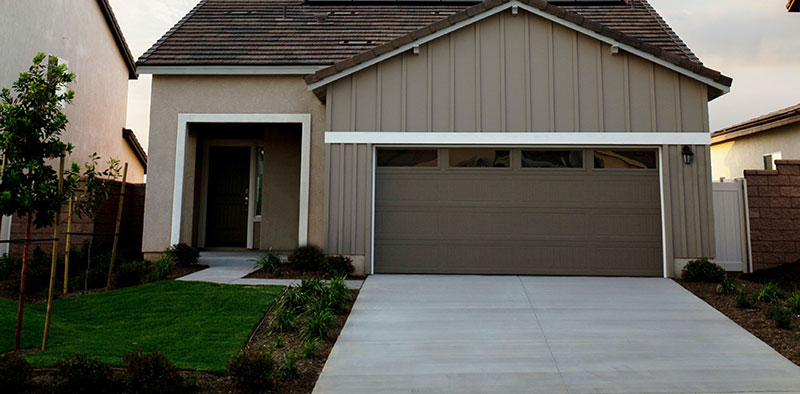Advertisement
As the owner of a garage door, you should be aware of some typical garage door issues and how to detect them. The following are some of the most frequent garage door issues:
Dents On Garage Door Panels
Aluminum or steel garage doors are prone to dents resulting from a collision or impact, and they may get one. The size of the dent might have an impact on your garage door’s mechanism, especially if it is near the tracks.
Sometimes, painting the garage door panels can conceal a dent. However, if the dent is extremely apparent, you should contact a professional garage door repair specialist.
Garage Door Springs Are Deteriorating
Garage door springs are an important component of the garage door system. The torsion spring or a pair of extension springs compensates for any imbalances in the weight distribution that might cause the door to fall.
Garage door springs are usually made of steel. If they become faulty, the weight is transferred to the cables and other components, which might result in system damage. It’s essential to get a garage door spring repair before they break since they wear out quickly and it can be very dangerous.
Here are some indications that a garage door spring has broken:
- The garage door slowly opens and then instantly shuts.
- You hear creaking noises or notice excessive vibrations as the door shifts.
- There are wires dangling near the spring.
- The garage door is wavy in movement.
- It’s difficult to lift manually once you’ve unplugged the garage door and opener.
Garage Door Works Slower Than Usual
Most garage doors are now operated with an automated opener that allows you to operate a garage door from a handheld transmitter or wall-mounted switches.
The garage door opener has a motor, chain, belt, or screw drive mechanism that starts the garage door’s movement.
An automated garage door moves about seven inches each second on average – that’s around 12 to 15 seconds. If your garage door is moving slower than usual, there may be something wrong with the automatic opener or other garage door components.
Here are some of the most common reasons why your garage door is slow:
- The rollers, springs, tracks, hinges, and bearing plates need lubrication.
- The opener’s speed control has been set incorrectly.
- The torsion or extension springs, cables, and rollers are wearing down.
You should lubricate the moving garage door components and hinges at least once every six months for the solution. Furthermore, to repair the opener’s speed control setting, follow your manual.
The Garage Door Cable Came Off the Track
The springs, rollers, and drive all help to raise or lower a garage door. The cables are also a safety feature against the spring rebound of a faulty garage door spring.
The garage door cables may come loose from the track due to wear and strain, or as a result of excessive rubbing against garage door components. A garage door technician can repair your cables to ensure your safety. He may also assess if you require a cable replacement rather than a garage door cable repair.
Conclusion
Because a garage door opens or closes several times each day, it’s vital to be aware of some common reasons why a garage door is not opening properly. You should make sure your garage door is in good working order as the garage door owner.
Keep in mind that you may improve the curb appeal of your home by installing a beautiful and efficient garage door.

